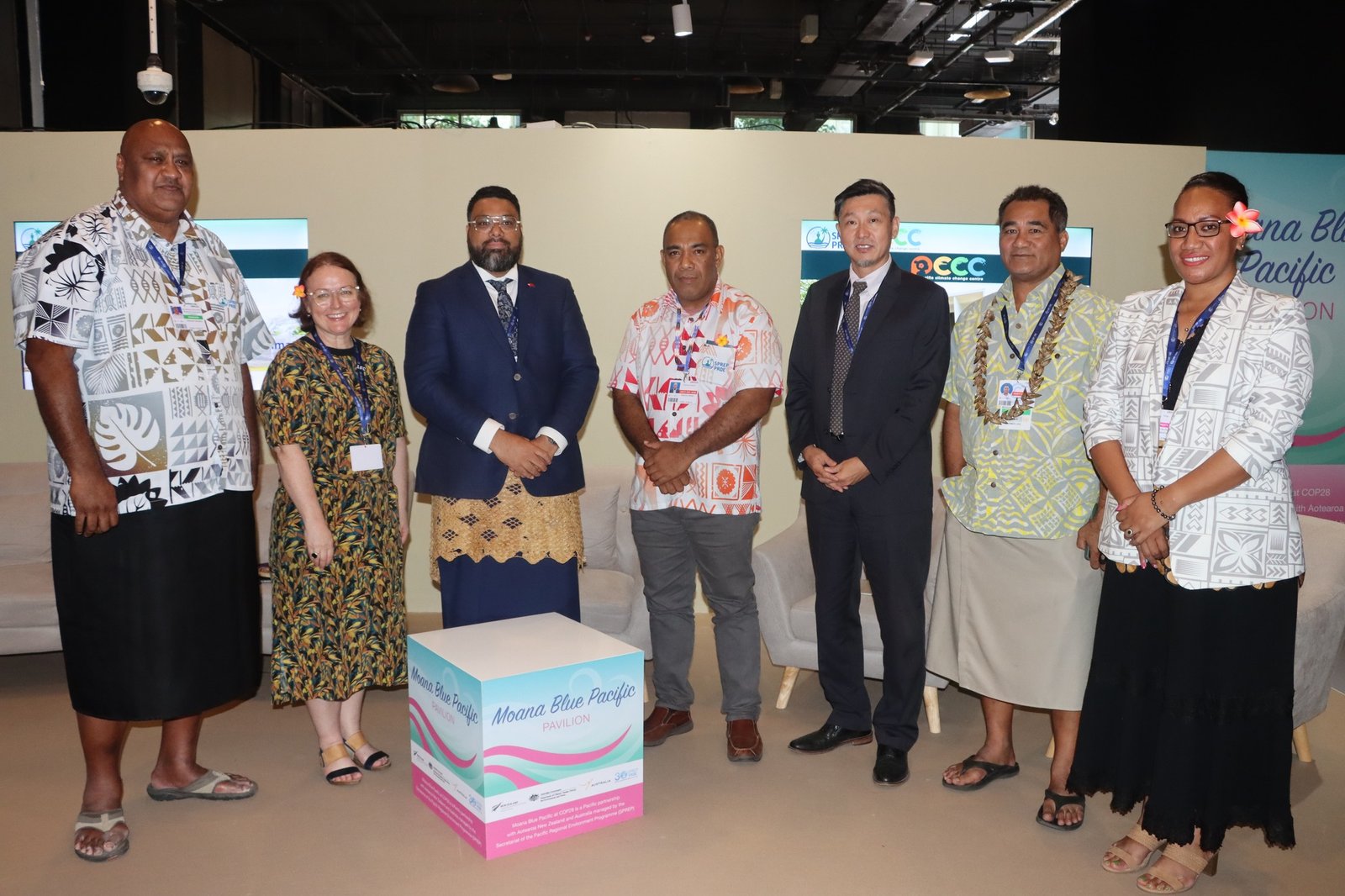
Pacific leaders unite for more climate action at COP28
The impacts of climate change are already being felt around the world, nowhere more so than in the Pacific Island countries. For the leaders of the Pacific Region, the United Nations-backed climate change summit called the 28th Conference of Parties (COP 28) underway in the oil-rich Kingdom of the United Arab Emirates is not just another meeting, but a fight for existence.
With more than 740,000 population, the Solomon Islands is amongst the most vulnerable countries to the impact of the changing climate where communities and livelihoods have been devastated, entire islands going underwater and communities being driven from their homes, livelihoods and resources.
The Solomon Islands joins other countries in the region to call on wealthier countries to fulfill their commitments and obligations under the 2015 Paris Agreement to keep the 1.5 degree goal alive and take robust action in supporting vulnerable communities to cope with climate change.
Dr Melchior Mataki, the deputy Head of Solomon Islands delegation to COP28, said he welcomes the “spirit of cooperation and commitment for the operationalization of the loss and damage fund and calls for similar cooperation translated into reducing emissions.”

Some members of the Solomon Islands delegation to COP28
At COP28, the ‘Moana Blue Pacific Pavilion’ funded by the Governments of Aotearoa New Zealand and Australia and managed by the Secretariat of the Pacific Regional Environment Programme (SPREP) played host to most of the side events where Pacific countries unite in calling for more climate action.
These events/meetings played a critical role in influencing the outcomes of the summit.
As the summit gets underway, leaders, advocates and civil society groups in the Pacific are pushing and negotiating for aid and collective action to reduce the effects of climate change.
The ultimate goals for these countries is to advocate for effective action in keeping the 1.5 alive, effective Global Stock Take, the establishment of a financial mechanism to respond effectively to the impacts of climate change and the phasing out of fossil fuels.
They had one thing in mind; and that is to hold greenhouse gas emitting countries accountable for the damages climate change has caused to their lives.

Opening of the Moana Blue Pacific Pavilion Photo | SPREP
In a collective effort to protect the ocean, Pacific leaders launched the ‘Unlocking the Blue Pacific Prosperity Initiative’ on Sunday’. The plan outlines the goals for a 100 percent management of the ocean and 30 percent protection of the Blue Pacific Continent led by the President of Palau, Surangel Whipps Jr.
Among other high level officials who attended is the United States Special Envoy for Climate John Kerry who joined other Pacific leaders in attending the Ocean Conference in Palau last year.
Kerry said the impacts of climate change are irreversible and the voice of the Pacific against climate change is among the most powerful voices in the world.
“I plead with you that your voices are among the most powerful voices in the world”.

United States Special Presidential Envoy for Climate, John Kerry
The Pacific Youth Champions as future leaders of the Pacific also held a session, ‘Leadership for a 1.5 World’ with Pacific leaders, Kerry, China’s representatives to voice their expertise and engage in negotiations in keeping the 1.5 alive.
Secretary General of the Pacific Islands Forum Secretariat Henry Puna said Pacific countries are at COP28 to discuss the future of humanity.
He reminds leaders of keeping the 1.5 alive in their negotiations at COP28.
COP28 marks the conclusion of the GST where it assessed the progress made under the Paris Agreement. A new road map will be established during the summit for countries to increase actions against climate change.
ENDS///
By Fredrick Kusu
Dubai, United Arab Emirates
This story was produced as part of the 2023 Climate Change Media Partnership, a journalism fellowship organized by Internews’ Earth Journalism Network and the Stanley Center for Peace and Security

